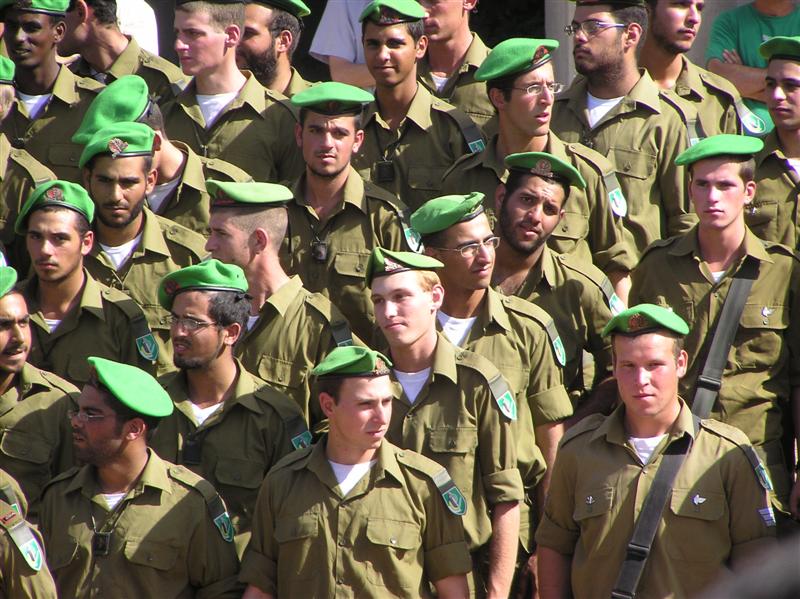The People's Army Model on:
[Wikipedia]
[Google]
[Amazon]
 The People's Army Model (
The People's Army Model (
 The People's Army Model (
The People's Army Model (Hebrew
Hebrew (; ; ) is a Northwest Semitic language of the Afroasiatic language family. Historically, it is one of the spoken languages of the Israelites and their longest-surviving descendants, the Jews and Samaritans. It was largely preserved ...
: מודל צבא העם) is a school of thought
A school of thought, or intellectual tradition, is the perspective of a group of people who share common characteristics of opinion or outlook of a philosophy, discipline, belief, social movement, economics, cultural movement, or art movement.
...
in Israel concerning the role of the Israeli Army, the IDF
IDF or idf may refer to:
Defence forces
* Irish Defence Forces
* Israel Defense Forces
*Iceland Defense Force, of the US Armed Forces, 1951-2006
* Indian Defence Force, a part-time force, 1917
Organizations
* Israeli Diving Federation
* Interac ...
, vis-à-vis Israeli society. According to this conception, the IDF plays a broader role than merely defending Israel's national security. Israel's regular army
A regular army is the official army of a state or country (the official armed forces), contrasting with irregular forces, such as volunteer irregular militias, private armies, mercenaries, etc. A regular army usually has the following:
* a standin ...
is relatively small, and thus its strength in emergency is based on reservists
A reservist is a person who is a member of a military reserve force. They are otherwise civilians, and in peacetime have careers outside the military. Reservists usually go for training on an annual basis to refresh their skills. This person is ...
, which comprise much of the entire nation. Following the Suez Crisis, the Israeli newspaper ''Davar
''Davar'' ( he, דבר, lit. ''Word'') was a Hebrew-language daily newspaper published in the British Mandate of Palestine and Israel between 1925 and May 1996.
It was relaunched in 2016, under the name ''Davar Rishon'' as an online outlet by th ...
'' published the following: "Our army is, as is well known, the people's army, an army of reserves, the laborer and the clerk, sthe laborer and the teacher had one day laid down their daily work and stabilized the flag".
History of the Model
The model is based onDavid Ben Gurion
David Ben-Gurion ( ; he, דָּוִד בֶּן-גּוּרִיּוֹן ; born David Grün; 16 October 1886 – 1 December 1973) was the primary national founder of the State of Israel and the first prime minister of Israel. Adopting the name ...
’s belief that the universality that would derive from this “ melting pot” ideal would help create cohesion among members of society, regardless of their backgrounds; this would serve as both a builder of national identity after the establishment of the state, bringing together people of different socioeconomic backgrounds and racial identities.
There is also the idea that the IDF is by the people, for the people. The IDF allow soldiers to go home often and also allows regular communication with the “outside world.” After an initial training period, the formality commonly associated with military service dissipates, which serves as a tool to promote this ideal.
One of the initial goals of the People's Army Model is to serve as an apolitical, strong force; in theory, it is the best functioning government institution.
Movement away from the Model
With fewer large wars, fewer people are needed to serve at any given time. Additionally, reserves are no longer compulsory anymore. There are also fewer and more divisive career paths emerging with the modernization of the army. The melting pot ideal that served as the basis for the model has also begun to dissipate as a strong tie with socioeconomic status and racial identity serves as a mediating factor in army service. Availability of training courses towards certain more elite brigades has affected the authenticity of the “for the people” element of the army. There is also debate within the country on the definition of the term "People's Army," because this suggests a similar intention to serve; however, there is a modern day divide among those serving to ensure that Israel maintains its status as a military powerhouse, and others who serve because it maintains a sense of Zionism.Service exemptions
Those exempt from service also affect the demographics of those who serve in the army; they are usually for medical or religious reasonings and limit the country's national representation.References
{{DEFAULTSORT:People's Army Model, The Society of Israel Israel Defense Forces